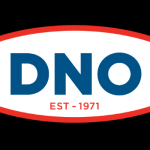AE-linked Norwegian oil and gas operator DNO ASA, has announced completion of testing and appraisal of the Baeshiqa-2 exploration well in the Kurdistan Region of Iraq.
The testing has proven oil and gas in three separate Triassic aged reservoirs, Kurra China A, B and C, with testing also carried out on shallower Jurassic-aged reservoirs. Evaluation of the test results will determine next steps towards further appraisal and assessment of commerciality.
Spudding of the new Zartik-1 well, 15 km. from Baeshiqa, targeting Jurassic reservoirs, is scheduled for 15th May.
DNO acquired a 32 percent interest and operatorship of the Baeshiqa licence in 2017. Partners include ExxonMobil with 32 percent, Turkish Energy Company with 16 percent and the Kurdistan Regional Government with 20 percent.
The company has also reported that it has identified and implemented 2020 budget cuts of US$350 million or 35 percent across all categories of spending as it moved early and quickly to protect its personnel and operations and preserve its cash position in response to the devastating impact of the coronavirus pandemic. The company exited the first quarter of 2020 with a cash balance of $543 million, up from $486 million at the end of 2019.
“One of the first to hit the brakes, DNO is positioned to be one of the first to press down on the accelerator with signs of sustained market recovery, notably through short-cycle drilling in Kurdistan,” Bijan Mossavar-Rahmani, DNO’s Executive Chairman of both DNO and RAK Petroleum, said. “Lifting costs below US$5 per barrel in Kurdistan give DNO competitive advantage when oil prices are weak and strong cash flow when oil prices recover,” he added.
Releasing its interim first quarter results today, DNO reported revenues of US$206 million, largely driven by lower oil prices and a net loss of $40 million on the back of impairments of its North Sea assets, again driven by lower oil prices.
Production was split 80:20 between the Kurdistan region of Iraq and the North Sea.
DNO’s Company Working Interest production averaged 99,857 barrels of oil equivalent per day (boepd) during the quarter, of which Kurdistan contributed 81,221 barrels of oil per day (bopd) and the North Sea 18,636 boepd. Gross production at the DNO-operated Tawke and Peshkabir fields in Kurdistan averaged 61,493 barrels and 53,714 bopd, respectively. After completing five development wells in the licence during the quarter, DNO released four drilling rigs in Kurdistan but continues to use its workover rig to service production wells.
In the North Sea, the Bergknapp exploration well, in which DNO has a share of 30 percent, discovered hydrocarbons in multiple formations of poor to good reservoir quality with recoverable resources ranging 26-97 million barrels of oil equivalent (MMboe). The discovery is Norway’s largest to date in 2020 and the probability of commerciality is considered high.
Meanwhile, the Peshkabir-to-Tawke gas capture, transport and reinjection project to effectively end CO2 emissions at Peshkabir and boost oil recovery at Tawke is completed and undergoing commissioning.
To achieve budget reductions, DNO has deferred most discretionary drilling and capital projects. In the United Kingdom, no drilling is planned and the balance of the Schooner and Ketch decommissioning programme has been suspended and deferred to 2021/2022. DNO’s 2020 North Sea drilling campaign has been scaled back and wells deferred, but firm plans remain in place for wells in five licences during the rest of the year, including two exploration, one appraisal, two infill and two developmentcgeopilot wells.





